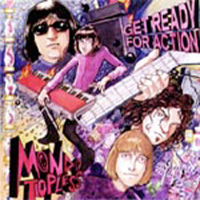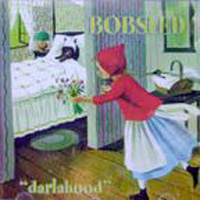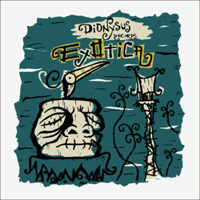 Exotica
Exotica
An interview with Robert Drasnin & Lee Joseph
by Clarendon Lavorich
Somehow, somewhere, in the late ’50s, a sound began. A sound of grace, wonder and beauty. It was like nothing anyone had heard before. Subtle, smooth, lots of percussion. It was given a name: Exotica. It was a sound that veered off from the standard big band format, that plunged both hands into music from Polynesia, the Caribbean, and Hollywood sound sets. The music was slick, sexy, and in stereo. Now your hi-fidelity system could be used to its fullest. Eventually, certain writers came to the fore, like Esquivel, Martin Denny, Robert Drasnin, and Les Baxter.
The resurgence of Exotica has been slowly building steam with the re-release of Robert Drasnin’s Voodoo album (Bacchus) and with a recently-found “live” recording of a Les Baxter television special (released by Bacchus under the title Les Baxter’s Lost Episode). I talked with both Robert Drasnin and Lee Joseph (the founder of Dionysus Records) about Exotica, and they were most helpful in putting all the pieces together.
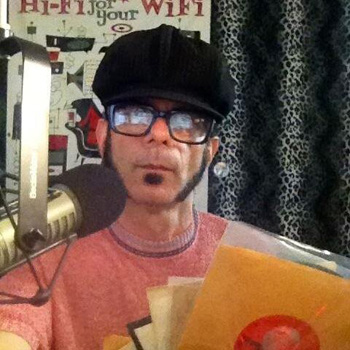 How did Exotica come about?
How did Exotica come about?
Lee: The phenomenon (Exotica) wasn’t planned. It was just a merging of musical styles, a cross-breeding of a lot of different musical influences. The whole Polynesian thing was brought over by soldiers out in the Pacific. Hawaiian music had been popular in America for many years, even in the early part of the century. There was just this fascination with Hawaii. There’re all kinds of other musical influences as well – jazz, Afro-Cuban, Cuban-Latin… all that stuff was going on simultaneously.
Robert: There were various records being released that simply fell under that category. The Voodoo album itself was originally released under the name Percussion Exotique. And many other records had “Exotique” in the title. It’s music that had Caribbean, Polynesian, and Afro-Cuban percussion. It’s just sort of that instrumentation of vibes, piano and no horns that fell into the genre. It was very different at the time.
Lee: Another thing that helped was the proliferation of hi-fi stereos. Composers used so many effects and panning tricks and people who had stereos wanted albums that wouldutilize them to their fullest extent. They wanted albums that set a mood, a concept for each record.
Even with all that cross-breeding, it seems that something else was going on, using such large and diverse orchestration.
Lee: I think Les Baxter is mostly responsible for that, because if you look at most of the Exotica music, from the late ’50s to the early ’60s, it was all small combos. I think Baxter truly was one of the first people who went out and took different influences… he was the first “world music” guy.
 Robert: In my case, they are more adventuresome because they aren’t arrangements, they’re compositions. I had just gotten my Masters in composition and my head was more into composing than arranging. The pieces had to be organically complete with the counterpoint and harmony (they’re more modal than harmonic) as a little piece of music. It all came out of the original idea, rather than added on, like in arrangements. I wasn’t thinking about standard 32-bar tunes or anything like that. The pieces just evolved. The only thing I knew I had to include was a lot of percussion breaks.
Robert: In my case, they are more adventuresome because they aren’t arrangements, they’re compositions. I had just gotten my Masters in composition and my head was more into composing than arranging. The pieces had to be organically complete with the counterpoint and harmony (they’re more modal than harmonic) as a little piece of music. It all came out of the original idea, rather than added on, like in arrangements. I wasn’t thinking about standard 32-bar tunes or anything like that. The pieces just evolved. The only thing I knew I had to include was a lot of percussion breaks.
Robert, Why did you use vocalists who sing no words?
Robert: Well, I don’t write very good lyrics. It was just another way of getting an exotic sound. And there aren’t very many other instruments on Voodoo, except for a piccolo trying to emulate a native wooden flute. I played it out of tune, and fluttered the sound. I pretty much wrote the whole album with my head in the ground. I hadn’t listened to a lot of Exotica, all I knew was that I had to write an album that had an exotic feel with lots of percussion and using the Stereo field, and that was it. I’d always loved writing music that brings to mind foreign locals, and instead of actually doing the research, I pulled the old Hollywood trick of just writing what you thought it would sound like.
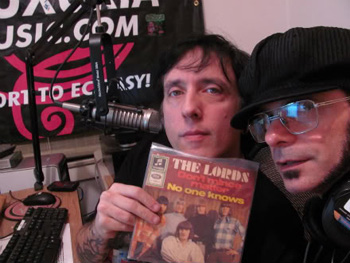 Why the resurgence nowadays?
Why the resurgence nowadays?
Lee: It’s amazing. I think the whole thing started because of record collectors, as well as college radio, with the DJs being able to play what they want, and fanzines making reference to the whole Exotica scene. . . The “Incredibly Strange Music” books put out by RE/Search REALLY introduced this stuff to the mainstream underground (It’s official! “Mainstream Underground!” You heard it here first!) It made a lot of people curious about Exotica. It’s strange… usually the nostalgia cycles these days are pretty close together. The ’70s are back, the ’80s are approaching, and here’s a scene that’s almost 40 years old! It’s true, the music was pretty out there. If you look at that era, the Leave it to Beaver era, and all that it meant, yeah, Exotica was way the fuck out there. There was a lot of sexual innuendo. I’m sure there were a lot of Baby Boomers who were conceived to Arthur Lyman records. Maybe it’s a backlash to “alternative” music. I mean, these people knew how to play, how to read… it wasn’t just pick up a guitar and make a lot of noise. I’m not forsaking punk or surf or anything, and I hope that the people who get into this don’t give up everything else that they’ve liked. To me this music is pretty much eternal at this point.
Robert, any thoughts on why there’s an Exotica resurgence?
Robert: For the life of me, I have no idea.


